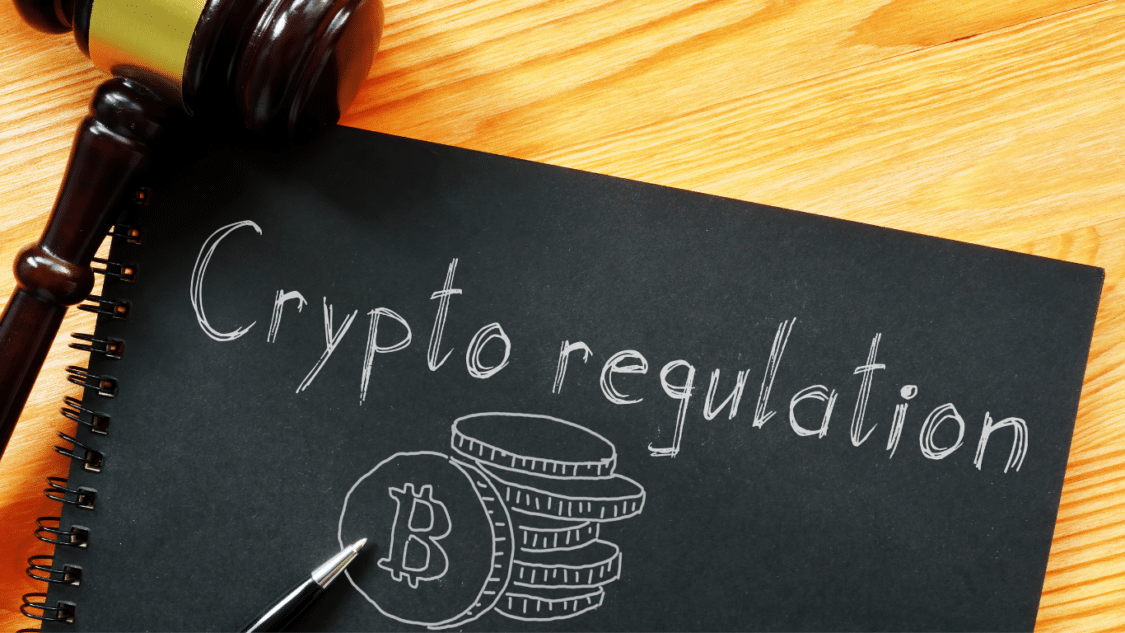Within the dynamic landscape of cryptocurrency, where fortunes can materialize or vanish with astonishing speed, the significance of Crypto regulation becomes undeniable. The regulation of Crypto is a hotly debated topic among investors, regulators, and enthusiasts alike. It has become a pivotal point of discussion as governments and financial institutions grapple with the complexities and opportunities presented by this digital revolution. As the decentralized nature of cryptocurrencies challenges traditional regulatory frameworks, finding the delicate equilibrium between fostering innovation and protecting investors has become a paramount concern.
In this article, we delve into the realm of crypto regulation pros and cons and examine the potential implications for the future of this rapidly evolving landscape. So, take a breath and brace yourself for an insightful expedition into the pros and cons of the regulation of Crypto, where we uncover the intricacies, potentials, and complexities that await us.

The attraction of Institutional Money – The lack of Crypto regulation in the market makes it common for money to disappear without getting it back. If the market were regulated with clear rules and operational structures, investors would likely invest way more money than they do now. The market would become more effective for dealers as liquidity levels rose. Significant pricing differences between exchanges that exist today would no longer exist.
Moral Legitimacy for the Crypto Market – From the beginning, Bitcoin was known as a coin for criminals. A coin to buy drugs and various other crimes that were unheard of. This changed in 2017 when the price of Bitcoin experienced a significant spike. However, this “coin for criminals” mindset still exists, which is why many countries are strict with their Crypto regulations.
A pro that can come about with this regulation as a digital asset is a regulatory framework that will guide the market. This will give many countries a reason to encourage cryptocurrencies instead of banning them.
What is a regulation of Crypto?
Crypto regulation refers to the set of rules, policies, and guidelines implemented by governments and regulatory bodies to govern the use, trading, and overall operations of cryptocurrencies. It aims to bring clarity, security, and oversight to the dynamic world of digital assets. Cryptocurrencies, decentralized and borderless by nature, present unique challenges requiring regulatory frameworks to ensure consumer protection, prevent illicit activities, promote market integrity, and foster innovation.
These regulations can cover various aspects, including licensing requirements for cryptocurrency exchanges, know-your-customer (KYC) and anti-money laundering (AML) regulations, tax obligations for cryptocurrency transactions, investor protection measures, and cybersecurity standards. Striking the right balance between regulation and the inherent benefits of cryptocurrencies, such as financial inclusion and decentralized systems, is a complex task for policymakers around the world. The evolving landscape of crypto regulation reflects an ongoing effort to harness the potential of digital assets while safeguarding against risks and promoting responsible adoption.
Who Is the Crypto Regulator?
In the exciting world of cryptocurrencies, you might wonder: Who is in charge of regulating them?
Well, it’s more complex than pointing to one person or organization. Unlike traditional financial systems, cryptocurrencies operate in a decentralized manner, challenging the idea of a single regulator. Instead, various players influence the crypto ecosystem, each with their own roles in shaping the industry. Let’s take a look at some of the main regulatory authorities involved.
Governments and their financial regulatory bodies play a significant role in cryptocurrency regulation. For example, the Exchange Commission (SEC) and the Securities in the United States are responsible for overseeing securities offerings and exchanges. Similarly, the Financial Conduct Authority (FCA) in the United Kingdom regulates crypto-related activities to protect consumers and maintain market integrity.
Central banks also have an impact on cryptocurrency regulation. They can introduce policies that affect the use and acceptance of cryptocurrencies within their respective jurisdictions. The European Central Bank (ECB) has been studying the implications of cryptocurrencies on the financial system and exploring potential regulations.
Tax authorities are another important player in the regulatory landscape. They have been addressing the tax implications of cryptocurrencies, ensuring that individuals and businesses comply with tax laws. For instance, the Internal Revenue Service (IRS) in the United States requires individuals to report their crypto transactions and pay taxes accordingly.
Furthermore, self-regulatory organizations have emerged within the crypto community. These organizations, such as the Blockchain Association and the Crypto Valley Association, aim to establish industry standards and self-regulatory frameworks and promote responsible practices among market participants.
While these examples illustrate some of the key regulatory authorities, it’s essential to note that the landscape is constantly evolving. As the crypto space matures, more countries are likely to establish specific regulatory frameworks to address cryptocurrencies’ unique challenges and opportunities. The goal is to strike a balance between fostering innovation, protecting investors and consumers, and maintaining financial stability.
Crypto Regulation Pros and Cons
Pros:
No More Scams: Many people, of course, are making millions through the crypto space, but one thing that is unheard of is scams. Since Crypto is unregulated, scammers open the door to the market where they launch various scam coins.
They place these coins into the market, and once investors start to invest, the owners disappear with all the money. This leaves investors with worthless tokens and a loss of money.
Now you may be wondering how regulation can resolve this issue. The regulation of Crypto will ensure that every coin entering the market meets specific criteria; therefore, scammers will not be able to create fake coins. In addition, regulation will give investors a sense of safety that their money is secure.

1. Safeguarding Investor Interests:
One of the critical advantages of crypto regulation is the enhanced protection it provides investors. With the increasing popularity of cryptocurrencies, the risk of scams, fraud, and market manipulation has also risen. By implementing regulatory frameworks, governments can enforce strict standards for transparency, disclosure, and accountability, thereby safeguarding the interests of investors. Through measures such as mandatory registration, licensing, and regulatory oversight of exchanges and platforms, investors can have greater confidence in the legitimacy and integrity of the crypto market.
2. Mitigating Financial Crime and Illicit Activities:
Cryptocurrency regulation plays a crucial role in curbing financial crime and illicit activities associated with digital assets. Cryptocurrencies’ anonymous and borderless nature has made them attractive to money launderers, terrorist financiers, and cybercriminals. However, with proper regulation, governments can implement robust Know Your Customer (KYC) and Anti-Money Laundering (AML) procedures, ensuring that transactions are traceable and accountable. By working in tandem with financial institutions and law enforcement agencies, the regulation acts as a deterrent, reducing the risk of illicit activities and making the crypto market a less attractive playground for criminals.
3. Fostering Market Stability:
Crypto regulation has the potential to bring much-needed stability to the volatile crypto market. The absence of regulation often results in extreme price fluctuations driven by speculative trading and market manipulation. By imposing regulations on trading practices, such as enforcing circuit breakers or implementing limitations on leverage, regulators can promote a more stable trading environment. This, in turn, encourages broader participation of institutional investors, who often seek a regulated and predictable market, leading to increased liquidity and reduced volatility.
4. Facilitating Mainstream Adoption:
Regulatory certainty is crucial for cryptocurrencies to achieve widespread acceptance and mainstream adoption. Regulation of Crypto provides:
- A clear legal framework.
- Addressing taxation concerns.
- Consumer protection.
- Cross-border transactions.
By establishing rules and guidelines, regulators can encourage businesses and individuals to engage with cryptocurrencies without fear of legal ambiguity. This fosters innovation and attracts traditional financial institutions and more prominent investors who may have hesitated to enter the unregulated crypto market. As regulatory frameworks become more established, it opens doors for institutional investment vehicles such as exchange-traded funds (ETFs), further bolstering the legitimacy and accessibility of cryptocurrencies.
5. Strengthening Global Financial System:
Crypto regulation can potentially strengthen the global financial system by bridging the gap between traditional banking and digital assets. As regulatory frameworks evolve, collaborations between banks and crypto exchanges emerge, enabling smoother integration and interoperability. Regulatory oversight can instil confidence in financial institutions, encouraging them to embrace cryptocurrencies as part of their service offerings. This convergence of traditional finance and the crypto world has the potential to unlock new avenues for capital flows, financial inclusion, and technological innovation, ultimately benefiting the global economy as a whole.
Cons:
It presents the risk of capital flight from Crypto – The crypto industry has gained popularity because individuals want to take control of their lives and move away from centralized government structures with parties involved. Therefore, adding rules from the government would be like introducing the very authority that crypto enthusiasts don’t want watching over their money. The outcome would be a move toward more reliable traditional assets. There would be no value in investing in a risky asset with an unclear ideological goal.

1. Stifling Innovation and Disruption:
One primary concern with the regulation of Crypto is its potential to stifle innovation. The decentralized nature of cryptocurrencies has allowed groundbreaking technologies, such as smart contracts, blockchain and decentralized finance (DeFi), to flourish. However, strict regulatory frameworks may impose burdensome compliance requirements and hinder the rapid development and experimentation that has characterized the crypto space. Excessive regulation could deter startups and innovators from entering the market, impeding the potential for groundbreaking advancements that could reshape traditional industries.
2. Privacy and Surveillance Risks:
Regulation of Crypto often raises concerns about privacy and surveillance. Cryptocurrencies, built on the foundation of pseudonymity and decentralization, offer individuals the ability to transact without intermediaries. However, stringent regulations may impose invasive Know Your Customer (KYC) and Anti-Money Laundering (AML) requirements, compromising user privacy. The acquisition and protection of sensitive personal data by exchanges and other players in the crypto sector render them susceptible to the perils of data breaches or illicit exploitation. Balancing the need for regulatory oversight with individual privacy rights is a complex challenge that regulators must navigate carefully.
3. Regulatory Arbitrage and Jurisdictional Challenges:
The global nature of cryptocurrencies presents unique challenges in implementing effective and consistent regulations. Crypto regulation that varies significantly across jurisdictions can create opportunities for regulatory arbitrage, where businesses and individuals can exploit regulatory loopholes or move operations to jurisdictions with more favourable regulatory environments. The absence of harmonized international standards could result in regulatory fragmentation, hindering the ability to oversee and control the crypto market effectively. Achieving cross-border cooperation and regulatory consistency is essential to address these challenges.
4. Evolving Nature of the Crypto Market:
The crypto market is highly dynamic and constantly evolving. New technologies, innovative projects, and novel use cases emerge rapidly. However, the regulatory landscape tends to lag behind these developments. When strict regulations are applied to a market that undergoes rapid change, it can lead to inefficiencies as regulations face difficulty staying up-to-date with the latest trends and advancements. Striking the right balance between regulatory oversight and allowing space for organic growth and adaptation is crucial to avoid hindering the potential of the crypto market.
5. Potential for Unintended Consequences:
Introducing the regulation of Crypto comes with the risk of unintended consequences. Well-intentioned Crypto regulations are designed to protect investors and prevent illicit activities that may inadvertently stifle legitimate market activity. Excessive regulation could drive businesses underground or into less regulated jurisdictions, undermining the transparency and oversight that regulations aim to achieve. Striking the right balance between regulation and maintaining a conducive environment for innovation and market growth is essential to minimize unintended negative effects.
Closing Thoughts
By now, it’s pretty evident that the pros of Crypto regulation outweigh the cons. These regulations of Crypto will lead to many advantages on the investor’s part. People will not be afraid to leave their money in exchange. Scams are much less likely to occur, leading to fewer losses. When it comes to the regulation of Crypto, there are a few areas that could be enhanced for better outcomes. This is because crypto investors today aren’t very engaged with the concept of cryptos and their power to the people. Regulation is a sort of capital protection because they want to invest and increase their money.




